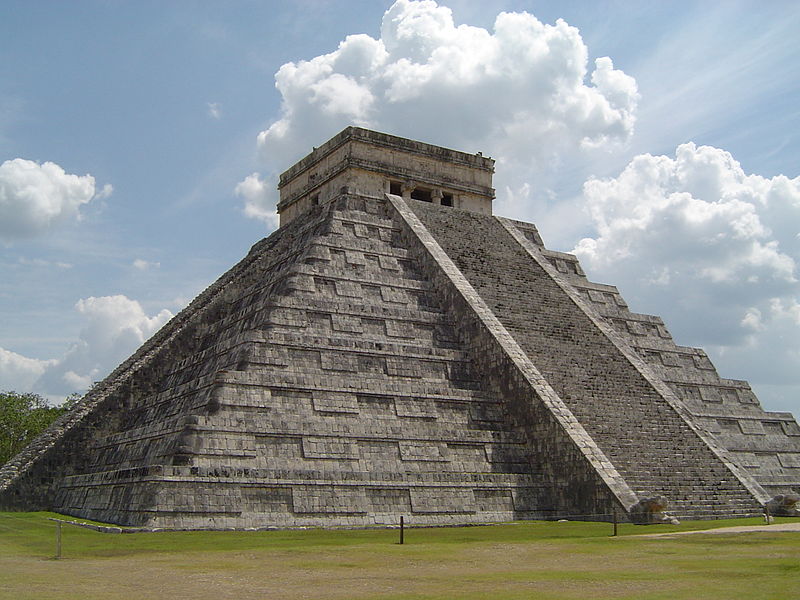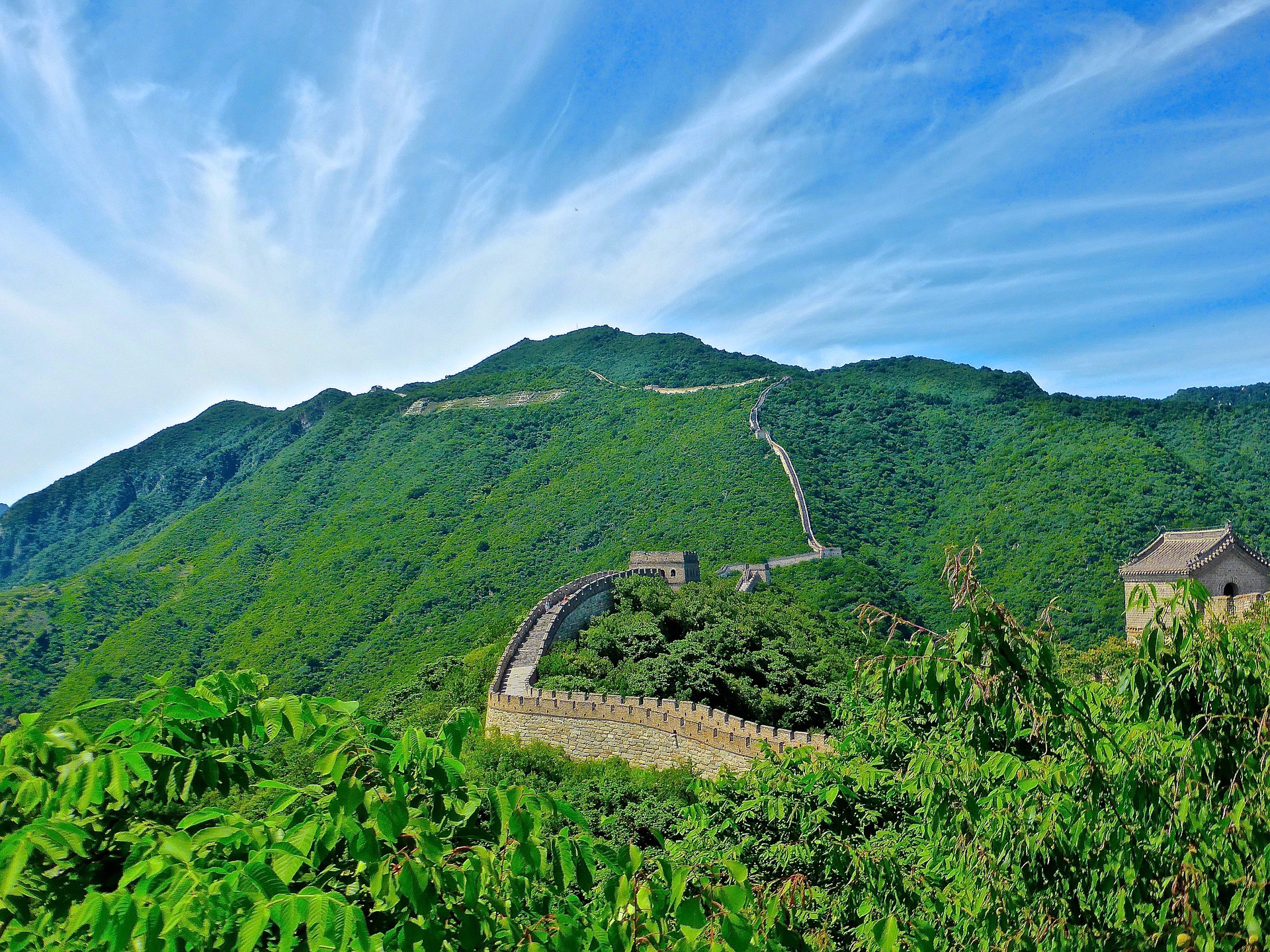The Fate of Empires
Article By Gilad Sommer
In 1976, at the age of 79, after a lifetime of service in the British army where he held high commands and fraternized with presidents and kings, Lieutenant General John Bagot Glubb, a.k.a Glubb Pasha, wrote a short but penetrating essay about the life cycle of superpowers called “The Fate of Empires”.
In this small book, Glubb refers to an idea that appears as far back as the Roman and Meso-American cultures. These ancient peoples observed that everything in nature is cyclical, and since human history is part of nature, it too must be cyclical, that is, it must go through fixed and repetitive stages. For example, every year goes through the cycle of the seasons – spring, summer, winter and fall; every human life-cycle – that is not cut short by circumstance or accident – goes through the stages of infancy, childhood, youth, adulthood, old age, death (and rebirth?). In the same manner, human history also goes through repetitive stages, and in his book, Glubb specifically refers to to the life cycle of empires, or what we would call today – superpowers.
According to Glubb, each superpower comes onto the stage of history, makes a unique and tremendous impact on the world, helping humanity evolve by doing so, and after an average life span of 250 years disappears from the world stage, making place for another empire.
Like a living being, the empire goes through different stages or “Ages” of development – the Age of Pioneers, the Age of Conquests, the Age of Commerce, the Age of Affluence, the Age of Intellect, and finally the Age of Decadence. This can be compared to the rising and the setting of the sun – where the sun reaches its highest peak between the age of commerce and the age of affluence. It is interesting to note that digital games, such as Sid Meier’s Civilization, where players develop their culture throughout time, are intuitively developed according to very similar lines.
Let us look at each of these Ages in more detail:
The Age of Pioneers – in this Age, a relatively unknown people bursts onto the stage of history, with great initiative, optimism, and energy. It usually fights the older empires and nations around it and takes over their cities and networks. There is a powerful self-confidence, manifested through strong, astute, and energetic leaders.
Whether it is the Mongols, the Arabs, or the Americans, it is hard to rationally explain the appearance of the new empire, and the transformation of a backwater people into a world phenomenon.
“The new nation is not only distinguished by victory in battle, but by unresting enterprise in every field. Men hack their way through jungles, climb mountains, or brave the Atlantic and the Pacific oceans. (…) Poor, hardy, often half-starved and ill-clad, they abound in courage, energy and initiative, overcome every obstacle and always seem to be in control of the situation.”
The Age of Conquests – the previously poor and unknown nation that came upon the stage of history now becomes a nation of conquerors. They show immense courage and organization, training themselves in the art of war by learning from the people they conquer. Their freshness allows them not to be attached to old ways of doing things, making room for originality and adaptability.
The Age of Commerce – vast areas of land allow for easier commerce because there is no need to cross many borders. Imagine, for example, moving oranges from the southern US state of Florida to Chicago in the north, 1200 miles (or 1900 km) away. If each US state had its own national borders, the truck driver would have had to submit to each state’s regulations, taxes, and licenses, instead of to one federal authority as it is today. It would have been much more difficult and costly. For this reason, an empire allows for easier commerce. At one point in its history, for example, a Roman official could have travelled for six months without ever leaving the Roman Empire.
Commerce, by its nature, also promotes the dissemination of knowledge, arts, and luxury, and the development of technology. At this Age of the empire, commercial initiative is celebrated side by side with courage, patriotism, and devotion to duty. Education forms strong people, aiming to serve their nation to the best of their abilities.
The Age of Affluence – A transition has taken place, a turn has been taken. As commerce increases, a new generation of merchants appears who does not see any merit in the old values of honor and glory, but only places value on monetary gains.
“There does not appear to be any doubt that money is the agent which causes the decline of this strong, brave and self-confident people. (…) The first direction in which wealth injures the nation is a moral one.”
People seek money for themselves, and not their country or community, and the object of the young is no longer fame, honor, or service, but cash. As a result, a defensive attitude grows in the empire, which begins to turn to external or hired mercenaries to defend its borders. It no longer seeks to expand, but to maintain the status-quo. Heroism becomes a thing of the past, and even considered immoral to some degree.
The Age of Intellect – affluent young people now aim for the acquisition of knowledge and academic honors leading to new discoveries and technological progress. In a sort of nostalgic reverie, intellectuals begin to look back, document, and write down the history of the empire. A dangerous byproduct of the Age of Intellect is the belief that intellect by itself can solve the problems of the world.
“Any small activity requires for its survival a measure of self-sacrifice and service on the part of its members. (…). The impression that the situation can be saved by mental cleverness, without unselfishness or human self-dedication can only lead to collapse.”
The Age of Decadence – the empire is getting old… Civil dissensions arise. The boat is sinking, and instead of collaborating to repair it or to build a new one, political factions fight each other over the leftovers. Immigrants flood the cities. Memories of old rivalries reappear. In response to the sinking of the empire, the helpless citizens react with aggressiveness or with a mentality of “after me, the flood”, an atmosphere of pessimism and frivolity arises. People live for themselves and for the moment, thus accelerating the breaking apart of the empire.
Somewhere perhaps a new empire is being born…
And you, reader, what do you think about this idea?
No model can describe reality in an absolute way, and this model, like any other, is an approximation of truth. But it can give us a glimpse to certain realities.
Read history. Look around you. Do countries and nations go through stages of life, just like us human beings? And if so, what stage is our civilization right now? And more importantly, what can we do in these times?
Can we save an empire from falling, or cushion its fall… or perhaps sow the seeds for a new and better one?
Whatever we do, the important thing is not to fall into pessimism and despair. It is better to make a small positive impact than to watch life go by from the comfort of the armchair.
Fate, perhaps, cannot be changed, but how we react to fate, is in our hands.
‘The fault, dear Brutus, is not in our stars, but in ourselves, that we are underlings.’
(Shakespeare, from Julius Caesar)
Image Credits: By Chait Goli | Pexels | CC BY PD
The entity posting this article assumes the responsibility that images used in this article have the requisite permissionsImage References
By Chait Goli | Pexels | CC BY PD
Permissions required for the publishing of this article have been obtained




What do you think?